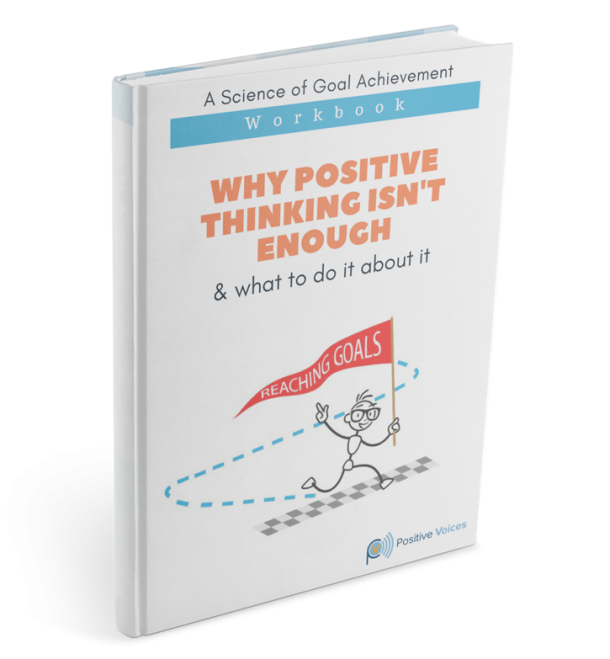“Just like me, this person knows what suffering feels like… Just like me this person wants to be of use in the world, but also knows what it’s like to fail. You don’t need to ask them if you are right. If they are human, you are right. All you need to do is choose to see it.” -Kelly McGonigal, The Upside of Stress
I called them immediately. My brother, my cousins, and friend after friend. Urgency accompanied me as I climbed the damp Vancouver streets, ducking under eaves once in a while to avoid saturating my phone. I’d experienced a shocking confrontation with a close family member. In one surreal moment the strongest of my ties forever loosened, and life shifted one degree. Everything felt different. Lost as to how to respond and rapidly marching nowhere, I reached out to my world.

In the minutes and days and months to come, many wove a web that arrested me in this space. Looking back, I now recognize that this event and the love that pulled me through, broke me better. My relationships took on a potency I hadn’t felt before. The boundary that used to hold family above friends diffused, and closeness was determined by shared spirit as much as by shared blood. The event dismantled my relationship framework, resulting in an expansion that ultimately increased its strength. Although I wouldn’t wish the specifics of this scenario on anyone, or choose it again myself, my “family” is now wider and stronger because of it.
I’ve experienced the process of stress enhancing my interpersonal connections, and the power of relationships to optimally transform stress. The reciprocal potential for stress and relationships to strengthen one another is the focus of this article. Previously believed to cause only selfishness and withdrawal, stress has also been found to inspire compassion, empathy, and feelings of deeper affinity with greater humanity. I will explain these processes, outline methods to leverage stress for the betterment of our relationships, and describe how to access our relationships for the optimization of our stress.
The positive choice
In my earlier article I referred to Kelly McGonigal’s book The Upside of Stress, where she discusses two primary stress responses to adversity: threat and challenge. Similarly, when it comes to interpersonal stress three primary responses have been observed: aggression, withdrawal and “tend-and-befriend.” As outlined by McGonigal previously, the form that your stress response takes is largely determined by how you think about stress. When we view stress as a threat we’re more likely to experience the fight-or-flight survival instinct, which predisposes someone to aggression or withdrawal. However, stress can also trigger a social connection instinct, referred to as the tend-or-befriend response. The tend-or-befriend response is just as strong as the instinct to fight or flee. In fact, McGonigal explains that our tend-and-befriend instinct is likely our foremost stress response. McGonigal explains that evolutionary, tending –and-befriending is more likely to lead to the defense of tribe members during times of danger, and is therefore the most adaptive on a group level.
Tend-and-befriend: A courage cocktail
Stress in the form of the tend-and-befriend response has distinct physiological correlates. When we reach out to others during times of stress the hormone, oxytocin is released in our brains. Also known as the “cuddle” hormone, oxytocin prompts the desire to connect with others. Additionally, oxytocin has been shown to inhibit the amygdala, which is the part of our brain responsible for fear. Thus, stress in the tend-or-befriend form can actually increase courage.
Due to the courage enhancing capacity of the tend-and-befriend response, mental performance consultants like myself frequently encourage athletes to reach out to each another during important moments. Basketball players high-five prior to free-throws, some gymnasts hug a teammate before beginning a routine; one equestrian told me that she tells her horse that she loves him each time they enter the competition arena. All of these are wonderful strategies to optimally transform stress during an important moment to reduce fear and increase courage. Often in doing so, one’s experience and performance are enhanced.
In addition to oxytocin, interpersonal connection also stimulates the release of dopamine, which is a hormone that plays a major role in motivation. So, in addition to helping a person feel more courageous, reaching out to others during challenging times can increase one’s desire to take action. The tend-and –befriend response also heightens the body’s attunement system, which is responsible for sensory perception, intuition, and self-control. In short, the tend-and-befriend stress response can help us to be more connected to one another, more courageous, more motivated, and to operate at our highest physical and mental capacity.

What impedes connection during times of stress?
One frequent contributor to negative stress is time pressure. No doubt we’re all familiar with the perception that we have too much to do and too little time to do it. When presented with a tight deadline people frequently withdraw in order to focus exclusively on the task before them.
The Wharton School of Business at the University of Pennsylvania carried out a fascinating study that explored the impact of attending to others on perceptions of time pressure. Participants were subjected to two different methods proposed to relieve time pressure: the gift of unexpected free time in which to do whatever they liked, or the request to help another person. This study found that those who had been asked to help others experienced the greatest decrease in their perception of time pressure of the two groups.
Jeremy Jamieson, the researcher who led the Wharton study, explains that helping others increased participants’ confidence in themselves, thus increasing personal estimations of their own capability to accomplish a given task in the time available.
So, the lesson? According to McGonigal, “when you are feeling overwhelmed, look for some way to do something for someone else that goes beyond your responsibilities.” McGonigal acknowledges that our first instinct in this scenario can be resistance, because we are feeling threatened by our perception that time is scarce. “But this is exactly why you should do it,” she insists. The generous action need not be large, but it should be novel – something you would not normally do in order for you to gain the benefit. Perhaps you slip a note into your child’s lunch bag, or text a friend to tell her she’s special to you, or compliment a stranger in the coffee line on his shirt…small acts go a long way for the recipient of the acts, and for you.
Bigger than self goals
Stress can be transformed into meaningful purpose by framing it in terms of bigger-than-self goals. Defined as goals that go beyond one’s personal gain, bigger-than-self goals have the potential to benefit others. McGonigal explains that bigger-than-self goals are not normally about concrete achievements, but rather about the role we wish to assume in a community, or a change we wish to cultivate for the greater good. Researchers have found that those who focus on bigger-than-self goals are more likely to feel energized, creative and inspired, while those who focus on personal gain are more likely to feel confused, anxious, and lonely. Over time personal gain goals are more likely to lead to burn-out and depression, while bigger-than-self goals lead to feelings of greater interpersonal connectivity and well-being.
The enhanced feelings of interpersonal connection and well-being for those with bigger-than-self goals are in part due to the social networks that a bigger-than-self focus encourage. By their very nature bigger-than-self goals generate interaction and inclusivity. Bigger-than-self goals are also contagious. When one person operates with a generous orientation others are prompted to do the same.
Psychologist, David Yeager has developed the following mindset intervention designed to align personal projects with a greater purpose larger:
Take a moment to think about what kind of person you want to be in the future. Also think about what kind of positive impact you want to have on the people around you or society in general…Write few sentences that answer this question: How will [insert personal project here] help you be the kind of person you want to be, or help you make the kind of impact you want on people around you or society in general?
Considering one’s project in this context can infuse it with meaning, and enhance feelings of connection, courage, motivation, and resilience in the face of adversity.
Me too
“As I moved through my life I started to understand…there is a difference between wanting to be looked at and wanting to be seen…when you are looked at you steal the spotlight…when you are seen you are seeing and recognize your witness. Not everybody wants to be looked at. Everybody wants to be seen”
-Amanda Palmer
Perhaps one of life’s most comforting encounters is that of another person who understands your experience. Empathy, the ability to stand in another’s shoes, is a coveted and widely sought quality in friendships. Empathy is the key ingredient of true connection between one another. Highly emotive events, be they joyful, challenging, or tragic hold a great deal of empathy potential. Opportunities that are meaningful to us, threaten us, confuse and embarrass us shake our public persona, leaving cracks through which our softer selves become exposed. We laugh about them, cry through them, and agonize up and down their tumultuous slopes. Frequently during these emotively seismic shifts, one catches a glimpse of the vulnerable core of another. Frequently, it’s not feelings of victory, or pity, or superiority that are experienced, but recognition. The recognition of one’s own struggle in another, a “me too” of the spirit, is one of the most meaningful moments two people can share. These moments would not be possible without stress – without internal upheavals that open us to recognize ourselves in one another.
So, the next time your life turns wildly, reach out. Grasp the hands of those close to hold you. Envision your greater mission and impact. Find a small kindness to bestow. By doing so you’ll feel greater courage, motivation, resilience and awareness of the fellow travelers walking through the rain with you.

